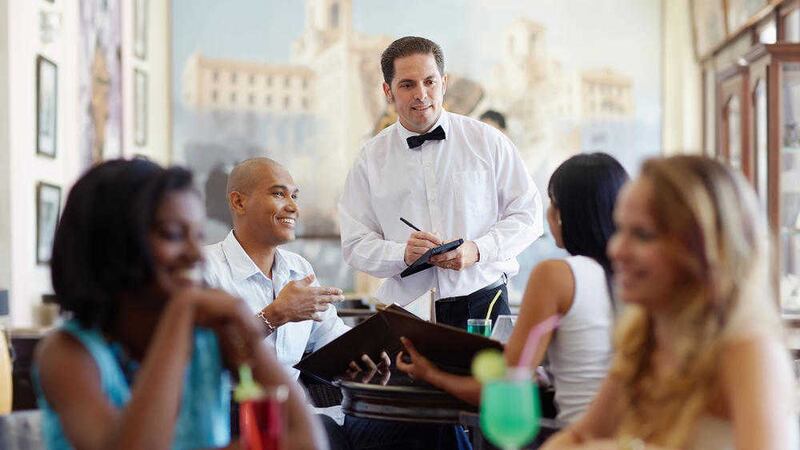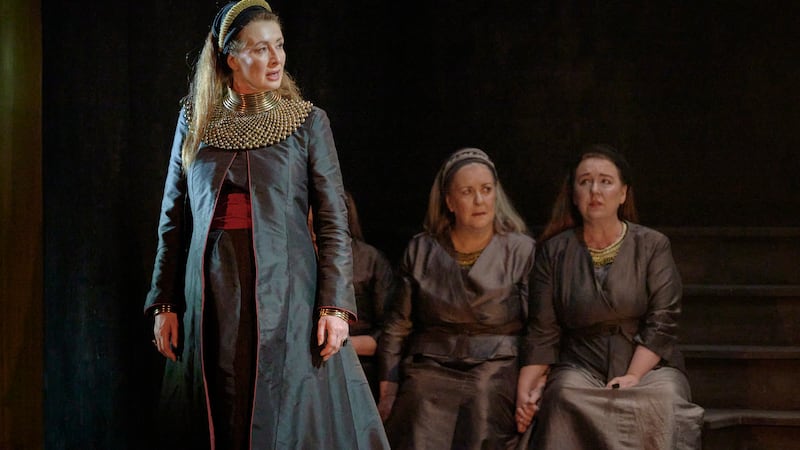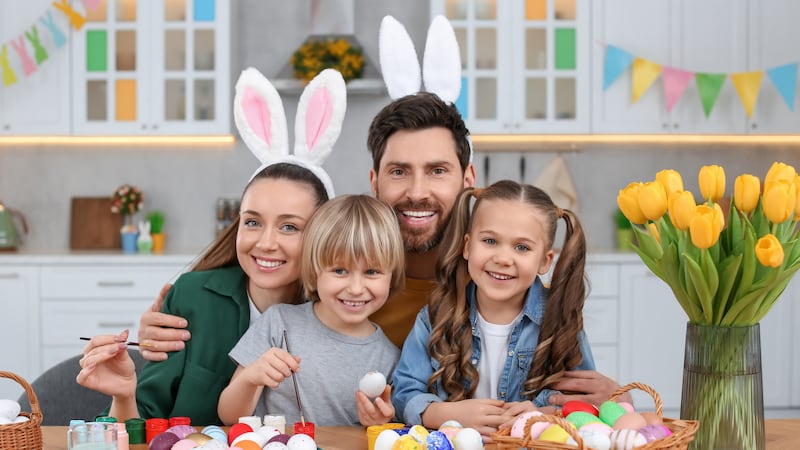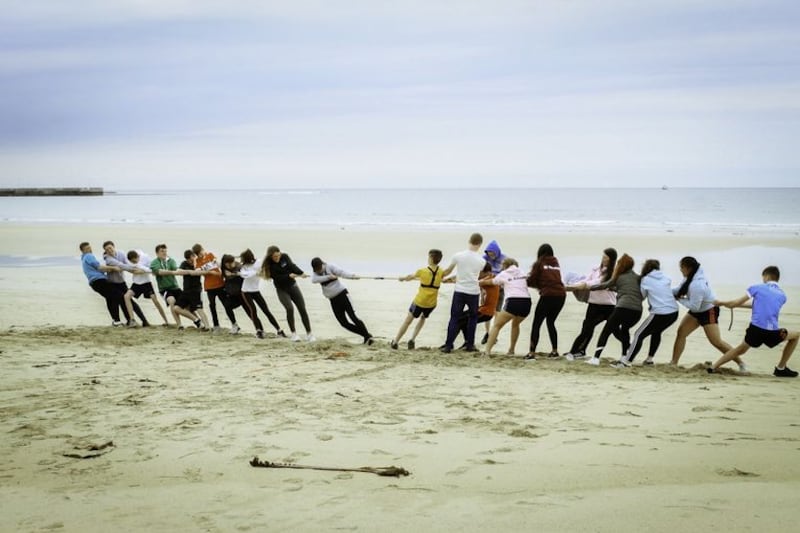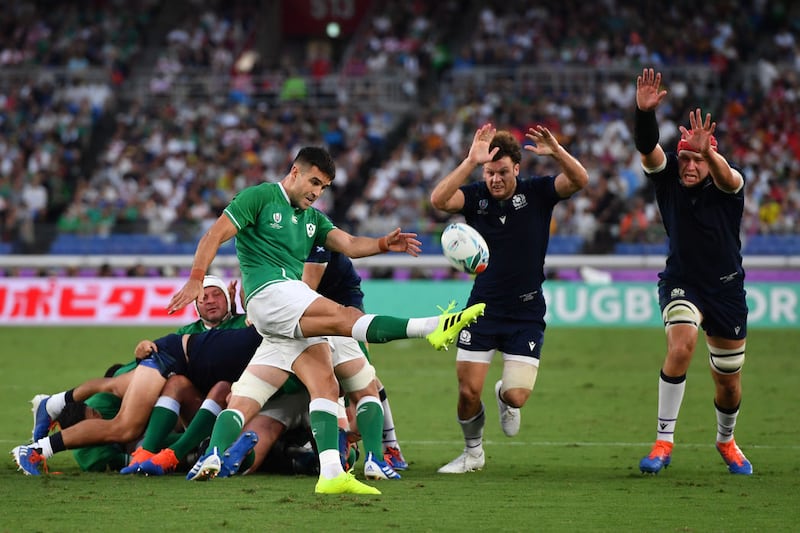GO mbeannaí Dia daoibh agus fáilte isteach chuig an Bluffer’s Guide to Irish.
If you’ve been following us so far, you should know how to say hello, introduce yourself, ask how people are etc.
For this week’s lesson, it is now time to let you loose on some poor unsuspecting Gaeilgeoir who works in a siopa - shop, bialann - a restaurant, a garáiste - a garage or anywhere where they sell things.
After the usual greetings - Dia duit, cad é mar atá tú? - the shopkeeper might say Cad é ba mhaith leat? - what would you like? or cad é thig liom a dhéanamh duit? - What can I do for you?
So if you are looking for four candles or fork handles or a Curly Wurly or a widget or a loaf, you would say ba mhaith liom .. followed by whatever you want.
So, ba mhaith liom an Irish News is what you would say if you wanted your favourite newspaper.
Or ba mhaith liom Snickers - if you are feeling peckish.
And don’t forget to say le do thoil - it means please.
Cad é ba mhaith leat? could also mean what are you having when you are asking your mates or a first date what they’d like to drink.
“Ba mhaith liom pionta tequila. le do thoil” - I’d like a pint of tequila, please is grammatically correct but should also send the alarm bells ringing. You’re in for a bumpy night!
You might be one of these people who only drink the most obscure German wheat beer or one of those awful “real ales” that are popular across the water (sorry, CAMRA) so you can ask An bhfuil .... agaibh? - have you ... as in an bhfuil Yardsman agaibh? - Have you Yardsman?
(It’s a Belfast-brewed pale ale if you must know or live outside Hipsterville).
You can also say tabhair dom - give me although superGaels like the Bluffer leave the word tabhair out and just use dom as in dom fiche (20) Silk Cut - gimme twenty Silk Cut.
And you’ll also need to know what things come in or how they are served.
You get drinks in a buidéal - a bottle, beans in a canna - a can, matches in a bosca - a box, Cheese and Onion in a paicéad - a packet, coal in a mála - a bag.
Now all the above will give you the chance to do some role-playing with friends and family where someone plays the shopkeeper and others play various customers.
You can use a dictionary if you don’t know the word for something. Or you could practice being in a bar (or better still, perhaps, be in a bar!) and practice buying rounds using cad é ba mhaith leat and ba mhaith liom...
Or pretend you’re in a a restaurant and order a feast. It’s all good practice.
And you should always try and use the Irish you have, no matter how little.
When the Bluffer is abroad, natives are delighted when he uses his limited Basque or Bulgarian be it just hello and thank you.
Little by little you will gain confidence the more you use so keep it up when you are in places where Irish is used.
siopa (shuppa) - shop
bialann (beealaan) - a restaurant
garáiste (garaashta) - a garage
Cad é ba mhaith leat? (cadge ay ba why lat) - what would you like?
cad é thig liom a dhéanamh duit? (cadge ay hig lum a yanoo ditch) - What can I do for you?
ba mhaith liom (ba why lum) ... I’d like ...
ba mhaith liom an Irish News (ba why lum an irish news) - I’d like the Irish News
le do thoil (le daw hull) - please.
Ba mhaith liom pionta tequila, le do thoil (ba why lum pinta tequila, le daw hull) - I’d like a pint of tequila, please
An bhfuil .... agaibh? (un wil ,,,agiv ) - have you ...
an bhfuil Yardsman agaibh? (un wil yardsman agiv) - Have you Yardsman?
dom fiche (20) Silk Cut (du feeha silk cut) - gimme twenty Silk Cut
buidéal (budge-aal) - a bottle
canna (cana) - a can
bosca (buksa) - a box; paicéad (pacayd) - a packet
mála (maala) - a bag
----
The Tower Museum will host a bilingual exhibition entitled Athbheochan na Gaeilge agus Éirí Amach na Cásca (The Irish Language Revival and the Easter Rising) from today (Monday) 1st to Friday 5th February.
The exhibition, which was developed by Conradh na Gaeilge details the history of the Irish language from its decline following the devastating impact of the Great Famine to its subsequent revival in the late 19th century, reflecting in particular on the role of the Irish language within the ideals of the revolutionary generation in 1916.
The exhibition also charts in detail the events leading up to the Easter Rising, exploring the stories of some of the key figures associated with 1916, both male and female.
The exhibition is part of the DCSDC Museum Service programme in partnership with the Council’s Irish Language Services programme.
Further Information is available from the Tower Museum, T: 028 71 372411, tower.reception@derrystrabane.com or from our Irish Language Service, T: 028 71 376 579, gaeilge@derrystrabane.com
----
For anybody who missed the last 27 years of classes at the Linenhall Library in Belfast city centre, a new beginners’ class is starting there on 9 February.
The lunchtime class runs from 1pm -1.45pm. and is free of charge. Everyone is welcome.
----
Pobal an Ghleanna, the new language group in County Tyrone wish to create a contact base. If you would like to be on our contact list send an email to pobalanghleanna@gmail.com. You will be added to a list which will tell you about the group’s events throughout the year.
----
Next Monday sees the start of a three-part series in which Seán Mac Labhraí retraces the steps of his literary hero, Seosamh Mac Grianna as he travels through Wales, using the Rannafast writer’s Mo Bhealach Féin as his guide.
Sean asks why one of Ireland’s greatest Gaelic novelists undertook this arduous physical journey and what - if anything - he got from it.
The series starts on BBC Two NI next Monday 8 February at 10pm.
